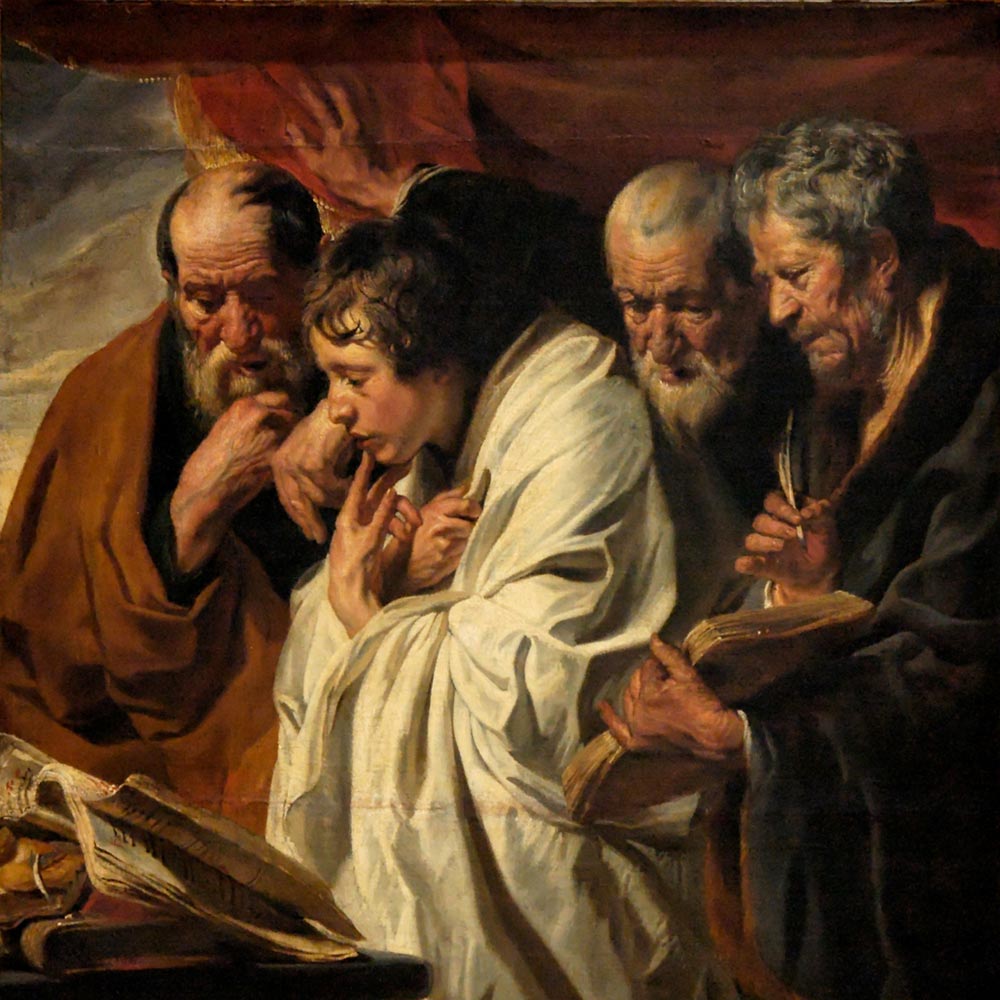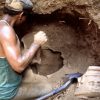Is Jerusalem still holy?
On December 6, 2017, the United States recognized Jerusalem as the capital of Israel. A few months later on May 14, 2018, the US embassy officially moved from Tel Aviv to Jerusalem. Both moves previewed President Trump’s 181-page Peace to Prosperity plan for the Middle East, nicknamed The Deal of the Century, released on January 28, 2020.1

A lot of American Christians celebrate these developments. They agree with Benjamin Netanyahu that Jerusalem is “the eternal, undivided capital of Israel.”
- perhaps the restoration of Jewish sovereignty the Holy Land, including all of Jerusalem, is required by their eschatology
- perhaps they feel historical, theological and ideological kinship with the Jewish people
- perhaps a Jewish-Jerusalem comports with their antagonism toward Islam and their general support for the West’s war on (Islamic) terror.
- perhaps they feel remorse over the Holocaust and centuries of Christian antisemitism
- perhaps they see this as one way to “bless” Israel, which in turn assures God’s blessing of America2
For many Christians, however, Jerusalem should belong to Israel
because God said so. It’s right there in the Bible.
Indeed, the Christian Old Testament has a much say about Jerusalem. Many are the promises of land, prophecies of territorial restoration, and visions of Jerusalem’s renewed glory. According to the Hebrew prophets, foreign nations will one day embrace the God of Israel and make physical pilgrimage to Zion.3
Psalm 122:6 “Pray for the peace of Jerusalem: may they prosper who love you.”
Psalm 137:5-6 “If I forget you, O Jerusalem, let my right hand wither! Let my tongue cling to the roof of my mouth, if I do not remember you, if I do not set Jerusalem above my highest joy.”
Israel’s Prophets on the Future of Jerusalem
Isaiah 2:2-3
2 In days to come the mountain of the Lord’s house shall be established as the highest of the mountains, and shall be raised above the hills; all the nations shall stream to it. 3 Many peoples shall come and say, ‘Come, let us go up to the mountain of the Lord, to the house of the God of Jacob; that he may teach us his ways and that we may walk in his paths.’ For out of Zion shall go forth instruction, and the word of the Lord from Jerusalem.
Isaiah 62:1-4
1 For Zion’s sake I will not keep silent, and for Jerusalem’s sake I will not rest, until her vindication shines out like the dawn, and her salvation like a burning torch. 2 The nations shall see your vindication, and all the kings your glory; and you shall be called by a new name that the mouth of the Lord will give. 3 You shall be a crown of beauty in the hand of the Lord, and a royal diadem in the hand of your God. 4 You shall no more be termed Forsaken, and your land shall no more be termed Desolate; but you shall be called My Delight Is in Her, and your land Married; for the Lord delights in you, and your land shall be married.
Isaiah 66:20 They shall bring all your kindred from all the nations as an offering to the LORD, on horses, and in chariots, and in litters, and on mules, and on dromedaries, to my holy mountain Jerusalem, says the LORD, just as the Israelites bring a grain offering in a clean vessel to the house of the LORD.
Jeremiah 31:38 The days are surely coming, says the LORD, when the city shall be rebuilt for the LORD from the tower of Hananel to the Corner Gate.
Joel 3:16-21 16
16 The LORD roars from Zion, and utters his voice from Jerusalem, and the heavens and the earth shake. . . . 17 So you shall know that I, the LORD your God, dwell in Zion, my holy mountain. And Jerusalem shall be holy, and strangers shall never again pass through it. 18 In that day . . . a fountain shall come forth from the house of the LORD. . . 20 But Judah shall be inhabited forever, and Jerusalem to all generations. 21 . . . for the LORD dwells in Zion.
Micah 4:1-2
1 In days to come the mountain of the Lord’s house shall be established as the highest of the mountains, and shall be raised up above the hills. Peoples shall stream to it, 2 And many nations shall come and say: “Come, let us go up to the mountain of the LORD, to the house of the God of Jacob; that he may teach us his ways and that we may walk in his paths.” For out of Zion shall go forth instruction, and the word of the LORD from Jerusalem.
Zechariah 8:3 Thus says the LORD: I will return to Zion, and will dwell in the midst of Jerusalem; Jerusalem shall be called the faithful city, and the mountain of the LORD of hosts shall be called the holy mountain.
Zechariah 14:16 Then all who survive of the nations that have come against Jerusalem shall go up year by year to worship the King, the Lord of hosts, and to keep the festival of booths.
Malachi 3:4 Then the offering of Judah and Jerusalem will be pleasing to the LORD as in the days of old.
Armed with texts like these, we can easily imagine folks like Vice President Mike Pence saying (sincerely, one assumes) that anyone who takes the Bible seriously should expect a glorious future for Jerusalem. One day the nations will ascend to the Holy City to worship the God of Israel.
Did Jesus’ earliest followers think any differently? Did they foresee a bright future for Jerusalem? Was the city still holy for them?
After Jesus’ departure, his followers spent their waking hours sorting out what happened, explaining why the crucifixion wasn’t a disaster, and rereading their Scriptures in light of the resurrection.
- Did they, like the prophets before them, foresee continued holiness for Jerusalem in the story of human redemption?
- Or did they now see Judaism’s territorial aspirations and Jerusalem’s theopolitical centrality as features of an earlier era?
What could we say about Jesus’ vision for the future of Jerusalem if we limited ourselves to Mark’s Gospel, our earliest surviving account of Jesus’ life and teachings?
As it turns out, not much. Let’s consider three bits of evidence.
1. THE RESTORATION OF ALL THINGS
First, there’s Mark 9:12 where Jesus says Elijah is coming “to restore all things.” Jesus is borrowing language here from Malachi 4:4-5, in which Elijah’s mission, if successful, would restrain God from utterly striking the land (4:5). Presumably, for Malachi, the land (and its people) once restored would enjoy God’s blessing. 4
Would not the restoration of all things include the ancient prophets’ hopes for Israel’s restored national identity and territorial autonomy? Would not Elijah’s second coming reestablish the primacy of Jerusalem?
One would think. Except that Jesus abruptly announces that Elijah has already come. What Mark’s Gospel implies Matthew’s gloss (Mt 17:13; cf. 11:14) makes explicit: that Jesus saw in John the Baptist the coming Elijah figure. John had indeed called Israel to corporate repentance and warned of impending wrath — Mark’s Gospel opens with this very scene. Here, however, Jesus concedes that John, as a latter-day Elijah, had met with deadly opposition, an ominous preview of what Jesus himself would face. Jesus saw himself standing at the turn of the ages, where the struggle between good and evil was raging.5 Nowhere does he hint that Elijah would try one more time, and this time get it right.
Matthew 17:9-13
9 And as they were coming down the mountain, Jesus commanded them, “Tell no one the vision, until the Son of man is raised from the dead.” 10 And the disciples asked him, “Then why do the scribes say that first Elijah must come?” 11 He replied, “Elijah does come, and he is to restore all things;
12 but I tell you that Elijah has already come, and they did not know him, but did to him whatever they pleased. So also the Son of man will suffer at their hands.” 13 Then the disciples understood that he was speaking to them of John the Baptist.
Mark 9:9-13
9 And as they were coming down the mountain, he charged them to tell no one what they had seen, until the Son of man should have risen from the dead. 10 So they kept the matter to themselves, questioning what the rising from the dead meant. 11 And they asked him, “Why do the scribes say that first Elijah must come?”
12 And he said to them, “Elijah does come first to restore (ἀποκαθιστάνει) all things; and how is it written of the Son of man, that he should suffer many things and be treated with contempt?13 But I tell you that Elijah has come, and they did to him whatever they pleased, as it is written of him.”
Malachi 4:4-6 (LXX – NETS)
4 And behold I am sending to you Elias the Thesbite before the great and notable day of the Lord comes, 5 who will restore (ἀποκαταστήσει) the heart of the father to the son and the heart of a person to his neighbor so that I will not come and utterly strike the land.
6 Remember the law of Moyses my slave, as I commanded him at Choreb with ordinances and statutes for all Israel.
2. A TEMPLE BUILT WITHOUT HANDS
We might catch a glimpse of Jesus’ vision for Jerusalem when he, appearing before the Sanhedrin in Mark 14:58 (cf. 15:29), stands accused of saying he would destroy the Temple and “in three days . . . build another, not made with hands.”
57 And some stood up and bore false witness against him, saying, 58 “We heard him say, ‘I will destroy this temple that is made with hands, and in three days I will build another, not made with hands.’” Yet not even so did their testimony agree.
Mark’s Jesus clearly opposes the guardians of the Temple and foresees its destruction (cf. 11:15-18; 13:2; 14:56-59).6 Nowhere in Mark, however, do we encounter Jesus pledging to destroy, much less rebuild, the Temple.
“In three days” would surely prompt Mark’s readers to think of Jesus’ three days in the grave. In which case, the temple built without hands would signify the risen Jesus, not another edifice on the Temple Mount.
3. A HOUSE OF PRAYER FOR THE NATIONS
Only in Mark 11:17, when Jesus demonstrates in the Temple, do we have possible evidence that Mark’s Jesus assumed a future Jerusalem and a functioning Temple. Everything depends on the imagery Jesus borrows from both Isaiah 56 and Jeremiah 7 to explain his table-turning indignation:
Is it not written, “My house shall be called a house of prayer for all the nations”? But you have made it “a den of robbers.”
In Isaiah’s vision, the day is coming when Torah-observant foreigners (56:6) will make pilgrimage to Jerusalem’s temple (v.7) to worship Yahweh alongside the regathered exiles of Israel (v. 8). Gentiles will be welcome in the House of prayer, yes. But on Jewish terms.
Isaiah 56:6-8
6 And to the aliens who cling to the Lord, to be subject to him, to love the name of the Lord, so that they may be his male and female slaves—and as for all who keep my sabbaths so as not to profane them and hold fast my covenant—7 I will bring them into my holy mountain and make them joyful in my house of prayer; their whole burnt offerings and their Sacrifices will be acceptable on my altar, for my house shall be called a house of prayer for all the nations—8 said the Lord, who gathers the dispersed of Israel—for I will gather to him a gathering.
Mark 11:15-18
15 Then they came to Jerusalem. And he entered the temple and began to drive out those who were selling and those who were buying in the temple, and he overturned the tables of the money- changers and the seats of those who sold doves; 16 and he would not allow anyone to carry anything through the temple. 17 He was teaching and saying, ‘Is it not written,
“My house shall be called a house of prayer for all the nations”?
But you have made it a den of robbers.’
Jeremiah 7:4, 9-11
4 Do not trust in these deceptive words: ‘This is the temple of the Lord, the temple of the Lord, the temple of the Lord.’ . . . 9 Will you steal, murder, commit adultery . . . and go after other gods . . . 10 and then come and stand before me in this house, which is called by my name, and say, ‘We are safe!’—only to go on doing all these abominations?
11 Has this house, which is called by my name, become a den of robbers in your sight?
Did Isaiah’s oracle inspire Jesus’ demonstration in the Temple? Did Jesus (in Mark) expect a literal fulfillment of Isaiah’s vision? Was he himself preparing for an in-gathering of both Israelites and aliens to the Temple in Jerusalem?
Lending weight to this idea is Zechariah, another prophet who spoke of Jerusalem’s eschatological vindication and purification, and of the pilgrimage of the nations. Zechariah’s oracle ends with an image of the Temple’s purity: “And there shall no longer be traders in the house of the Lord of hosts on that day,” a scenario to which Mark might be alluding in 11:16.
Zechariah 14:9-21
9 And the Lord will become king over all the earth; on that day the Lord will be one and his name one. 10 . . . But Jerusalem . . . 11. . . shall be inhabited, for never again shall it be doomed to destruction; Jerusalem shall abide in security. 16 Then all who survive of the nations that have come against Jerusalem shall go up year by year to worship the King, the Lord of hosts, and to keep the festival of booths… 20 On that day there shall be inscribed on the bells of the horses, ‘Holy to the Lord.’ And the cooking-pots in the house of the Lord shall be as holy as the bowls in front of the altar; 21 and every cooking-pot in Jerusalem and Judah shall be sacred to the Lord of hosts, so that all who sacrifice may come and use them to boil the flesh of the sacrifice. And there shall no longer be traders 7 in the house of the Lord of hosts on that day.
Should we conclude that Mark’s Jesus, “by driving out the merchants, . . . clears the way, figuratively, for the restored worship of the kingdom of God, in which all nations will participate, along with the returning exiles of Israel.” Was Jesus’ dramatic act meant to anticipate “the eschatological redemption of Jerusalem”?8
On this reading, Jesus would have expected the restored Temple to function as all ancient temples did: as a place of “whole burnt offerings” and “sacrifices” (Is 56:7; cf. Mt 5:23-24). Whether or not we should imagine more than restored worship — say, a restored national capital and renewed national sovereignty (cf. Isaiah 60-62) goes beyond our evidence.
Meanwhile, another reading of the passage merits consideration.
Jesus’ Temple demonstration in Mark (11:15-18) is followed almost immediately by the parable of the vineyard (Mark 12:1-12) in which a rejected but vindicated stone (12:10; cf. Ps 118:22) becomes the cornerstone.
Mark 11:15-18
15 Then they came to Jerusalem. And he entered the temple and began to drive out those who were selling and those who were buying in the temple, and he overturned the tables of the money changers and the seats of those who sold doves; 16 and he would not allow anyone to carry anything through the temple. 17 He was teaching and saying, “Is it not written, ‘My house shall be called a house of prayer for all the nations’? But you have made it a den of robbers.” 18 And when the chief priests and the scribes heard it, they kept looking for a way to kill him; for they were afraid of him, because the whole crowd was spellbound by his teaching.
Mark 12:1-12
1 Then he began to speak to them in parables. “A man planted a vineyard, put a fence around it, dug a pit for the wine press, and built a watchtower; then he leased it to tenants and went to another country. 2 When the season came, he sent a slave to the tenants to collect from them his share of the produce of the vineyard. 3 But they seized him, and beat him, and sent him away empty-handed. 4 And again he sent another slave to them; this one they beat over the head and insulted. 5 Then he sent another, and that one they killed. And so it was with many others; some they beat, and others they killed. 6 He had still one other, a beloved son. Finally he sent him to them, saying, ‘They will respect my son.’ 7 But those tenants said to one another, ‘This is the heir; come, let us kill him, and the inheritance will be ours.’ 8 So they seized him, killed him, and threw him out of the vineyard. 9 What then will the owner of the vineyard do? He will come and destroy the tenants and give the vineyard to others. 10 Have you not read this scripture: ‘The stone that the builders rejected has become the cornerstone; 11 this was the Lord’s doing, and it is amazing in our eyes’?” 12 When they realized that he had told this parable against them, they wanted to arrest him, but they feared the crowd. So they left him and went away.
As Mark tells the story, the builders who reject the stone (12:10) correspond to the rebellious tenants in the parable who reject the vineyard’s owner (12:1). Do they not also represent the chief priests and scribes in the previous chapter who wanted Jesus dead (11:18)?
Likewise, the stone represents the beloved son in the parable (12:6). Does it not also point to Jesus, the foundation stone of a grand edifice? Could it be that Mark sees Jesus as the foundation of a new Temple, one composed not of inanimate stones but of animate disciples?9
Does Mark invite us now to think of holiness located not in a place but in a person?

This is pretty much all we have on Jerusalem’s future in the Gospel of Mark. The evidence is both meagre and ambiguous.
- Either Jesus believed that God’s plan for the world would feature a glorious, restored Jerusalem (as the prophets foretold), but this was not something he had reason to emphasize
- Or Jesus’ vision of future restoration did not require a political headquarters in Jerusalem nor animal sacrifices in a future temple, since the new “temple” was his community.
Which option makes the best sense of Mark’s Gospel to you?
- Other markers of the Trump administration’s direction include its opposition to investigations by the International Criminal Court of possible Israeli war crimes; Trump’s call, in March 2019, for US recognition of Israel’s sovereignty over the Golan Heights; and the administration’s declaration, in November 2019 (reversing official policy dating back to 1978), that it no longer considers Israeli settlements in the West Bank to be in violation of international law.
- Popular appeals to “bless” Israel (based on Genesis 12:3) serve in neo-Pentecostal circles to insure personal and national prosperity. See Spector, Evangelicals and Israel, 24-25; V. Clark, Allies for Armageddon, 263, and future posts here. For a longer list of factors shaping American Christians’ attitude toward Israel, see Peter Gries, “How Ideology Divides American Liberals and Conservatives over Israel” Political Science Quarterly 130 (1, 2015), 51-78.
- W.D. Davies, The Gospel and the Land, 15-48; see also G. McDermott, The New Christian Zionism, 48-52, 92 n.16, 93, and C. Blaising, The New Christian Zionism, 89, n.13, cf.98.
- Sirach’s interpretation of Malachi suggests as much: “At the appointed time, it is written, you are destined to calm the wrath of God before it breaks out in fury, to turn the hearts of parents to their children, and to restore the tribes of Jacob (καταστῆσαι φυλὰς ᾿Ιακώβ)” (Sir 48:10). See Markus Öhler, “The Expectation of Elijah and the Kingdom of God,” JBL 118 (3, 1999), 461-76, esp. p. 468.
- Dale Allison, Jesus of Nazareth: Millenarian Prophet (Fortress, 1998) 146-47.
- Mark often names Jerusalem as the source of Jesus’ opponents (3:22; 7:1-5; 10:33-34; 11:27-33; 14:43).
- The Greek text of Zech 14:21 (καὶ οὐκ ἔσται Χαναναῖος οὐκέτι ἐν τῷ οἴκῳ κυρίου παντοκράτορος ἐν τῇ ἡμέρᾳ ἐκείνῃ) has “Canaanite,” a virtual transliteration of the Hebrew term which meant something like “merchant” (cf. VUL mercator) or “trader.” Early interpreters seem to have differed on whether the term referred generically to Gentiles, or more narrowly, to merchants; Mark’s unique description of Jesus’ actions (11:16) suggests he subscribed to the latter view. See Cecil Roth, “The Cleansing of the Temple and Zechariah XIV 21” NovT 4 (3, 1960), 174-181. On pilgrimage during the Festival of Booths, see also Lev 23:33-43; Deut 31:12; John 7:2, 10, 37-39.
- R. Hays, Reading Backwards (Baylor, 2014), 7; cf. G. McDermott, The New Christian Zionism, 52; R. Hays, Echoes of the Scriptures in the Gospels (Baylor, 2016), chp.1, §2 [Kindle]. E. P. Sanders, Jesus and Judaism (Fortress, 1985), 75, contends that Jesus’ action symbolized the Temple’s destruction to make way for the eschatological Temple and the restoration of Israel. See also C. Evans, “Jesus’ Action in the Temple: Cleansing or Portent of Destruction?” CBQ 51 (2, 1989): 237-70.
- Cf. Joel Marcus, The Way of the Lord (Westminster/JKP, 1992), 121-23. Cf. idem, Mark 8-16 [AB; Yale, 2009], 814-15. Cf. 1 Peter 2: 4-7; N. T. Wright, Jesus and the Victory of God (Fortress, 1996), 426; R. Hays, Echoes of the Scriptures in the Gospels (Baylor, 2017), 36; Meyer, The Aims of Jesus (Pickwick, 2002), 235. We’ll say more about Mark 12 in a subsequent post.








Lingering with Questions: I find your approach annoyingly satisfying. I’m learning to embrace dissonance and welcome variance, and yet slowly coming to an understanding of these things.
(I’m also very impressed with your approach to visiting other lands!)
I’m very much looking forward to hearing you and Alessandra at Trinity Church, Sarnia next Sunday!
Thanks, Joy. Your phrase “annoyingly satisfying” made me smile. Glad you found a few bits and pieces helpful. Looking forward to being at Trinity in a week!